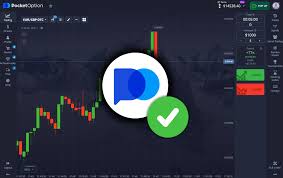
If you’re trading on pocket option taxes Pocket Option, it’s important to understand the tax implications that come with your trading activities. Many traders enter the world of online trading with excitement, often focusing solely on profits while overlooking the essential responsibility of tax compliance. The reality is that failure to report your trading earnings can lead to issues down the line, including fines and audits. In this article, we’ll discuss the various aspects of Pocket Option taxes and provide you with the information you need to manage your trading income responsibly.
What Are Pocket Option Taxes?
Pocket Option is an online trading platform that allows individuals to trade various financial instruments, including forex, commodities, and cryptocurrencies. When you trade, any profits you generate from your investments are considered taxable income by the government. Therefore, Pocket Option taxes refer to the taxes owed on the profits made through trades conducted on this platform.
Understanding Taxable Income
Taxable income generally includes all your earnings from trading activities. This can range from your total profits to any bonuses offered by the platform. It’s crucial to keep track of every trade, the buying and selling prices, and the resultant profits or losses. Accurate record-keeping will simplify your tax reporting when the time comes.
Types of Taxes on Trading Earnings
When it comes to trading profits, there are typically two types of taxes you need to be aware of:
- Short-term Capital Gains Tax: This tax applies to profits from assets held for a year or less. Short-term capital gains are usually taxed at your ordinary income tax rate.
- Long-term Capital Gains Tax: If you hold your investments for over a year before selling, you may qualify for reduced tax rates on long-term capital gains. The rates can be significantly lower compared to short-term rates, making long-term trading strategies more tax-efficient.
Documenting Your Trades
To comply with tax regulations, you should meticulously document your trades. This documentation includes:

- The date of the transaction
- The type of financial instrument traded
- The amount you bought or sold
- Your purchase and sale prices
- Any associated fees
Using a trading journal or financial software can help streamline this process and ensure you have all necessary information when tax time arrives.
Reporting Taxes on Pocket Option Earnings
As a trader, you may need to report your earnings on your annual tax return. The specific forms you need to fill out will depend on your jurisdiction, but in many countries, individual traders declare their earnings on personal income tax returns. Consult a tax professional familiar with the regulations in your area, as they can guide you on which forms to use and how to accurately report your trading income.
Tax Deductions for Traders
While it’s important to focus on what you owe, it’s also crucial to recognize that you can potentially reduce your taxable income through certain deductions. Expenses related to trading may be tax-deductible and can include:
- Trading platform fees
- Data subscriptions and trading software
- Home office expenses if you trade from home
- Education and training related to trading
Always keep receipts and logs of expenses for accurate reporting. Again, consulting a tax professional can help you identify all eligible deductions.
The Importance of Consulting a Tax Professional
Tax laws are intricate and often change. Consulting a tax professional who understands the specificities of trading taxes can significantly aid you in navigating this challenging landscape. They can provide personalized advice based on your trading activity, help you with tax planning strategies, and ensure compliance with regulations to avoid penalties.
Filing Your Taxes Accurately
Filing your taxes accurately is crucial for maintaining good standing with tax authorities. Ensure that all reported information is precise and that you only include income that is legitimate. Misreporting your finances can trigger audits or investigations by tax authorities, leading to unnecessary complications.
Common Mistakes to Avoid
While filing taxes may seem straightforward, many traders make common mistakes that can cost them. Here are a few pitfalls to avoid:
- Neglecting to report all income: Omitting income from your tax return can trigger an audit.
- Failing to keep good records: Lack of documentation can make it challenging to verify your income and deductions.
- Overlooking tax deductions: Missing out on deductible expenses can lead to overpaying on taxes.
Conclusion
Understanding Pocket Option taxes is crucial for every trader. Staying informed about your tax obligations, documenting your trades accurately, and seeking professional help can significantly ease the burden of tax filing. Compliance will not only keep you in good standing with tax authorities but can also enhance your overall trading experience. With the right strategies and knowledge, you can manage your earnings effectively and enjoy the benefits of successful trading on Pocket Option.
